
Cutting back on sugar with sweeteners? Bad idea!
How Artificial Sweeteners Are Absorbed: A Hidden Disruption
Your body doesn’t fully absorb artificial sweeteners. Instead, they pass through your digestive system largely unchanged, eventually reaching your colon, where they arrive at your gut bacteria. This interaction can set off a chain reaction, affecting the balance and health of your microbiome.
Incomplete Absorption: What Really Happens
While your body breaks down and absorbs natural sugars, sweeteners follow a different path when cutting back on sugar. Most sweeteners pass through the small intestine without digestion or absorption, remaining intact until they reach the colon. There, they encounter trillions of bacteria that support your digestion and overall health.
Sweeteners’ Impact on Gut Bacteria and Health
Once in the colon, artificial sweeteners interact with gut bacteria in ways that can disrupt the balance of the microbiome. Studies have shown that sweeteners like saccharin and sucralose can reduce beneficial bacteria while promoting the growth of harmful bacteria. This imbalance, known as dysbiosis, can affect everything from your digestion to your metabolism, leading to issues such as:
- Poor nutrient absorption: With fewer beneficial bacteria to help break down food, your body may struggle to absorb essential nutrients.
- Weakened immune response: An imbalance in gut bacteria can compromise your immune system, leaving you more vulnerable to infections.
- Inflammation: Dysbiosis has been linked to increased inflammation in the gut, which can lead to chronic health conditions like inflammatory bowel disease (IBD).
Metabolic Risks of Cutting Back on Sugar with Sweeteners
Artificial sweeteners affect your gut microbiome in ways that go beyond digestion. Disrupting gut bacteria interferes with how your body processes glucose. Research shows that sweeteners like saccharin and sucralose alter gut bacteria, leading to higher blood sugar levels and insulin resistance. Over time, this raises your risk of developing type 2 diabetes and other metabolic disorders.
Ironically, cutting back on sugar with artificial sweeteners may increase the risk of the very issues you’re trying to prevent, like high blood sugar and weight gain.
Research Insight: Sweeteners’ Impact While Cutting Back on Sugar
In a study involving 120 participants, those who consumed saccharin and sucralose experienced a significant increase in blood sugar levels. In contrast, participants who consumed aspartame, stevia, or glucose showed little to no effect. This suggests that different sweeteners affect gut bacteria uniquely, with some posing more significant health risks than others.
While artificial sweeteners may offer fewer calories, the hidden effects on your gut health can be significant. Each time you choose these sweeteners, you might disrupt your gut microbiome. This balance is crucial for digestion, immunity, and mental health.
A Deeper Look: Sweeteners and Their Hidden Costs in Cutting Back on Sugar
As more people aim to reduce sugar by using artificial sweeteners, substances like aspartame and sucralose have become household names. However, these sweeteners, often seen as healthier alternatives, may not be as harmless as they seem. Mounting research suggests that both aspartame and sucralose can disrupt gut health, leading to broader metabolic and digestive issues.
 Aspartame’s Effect on Gut Health While Reducing Sugar Intake: A Double-Edged Sword
Aspartame’s Effect on Gut Health While Reducing Sugar Intake: A Double-Edged Sword
Aspartame is one of the most widely used artificial sweeteners, found in everything from diet sodas to low-calorie snacks. Although it helps reduce sugar intake, its impact on gut health has raised concerns. The gut relies on a diverse microbiome to maintain optimal function, but studies have shown that aspartame may reduce this bacterial diversity.

Key findings related to aspartame include:
Reduced gut bacteria diversity: Aspartame appears to selectively reduce populations of beneficial gut bacteria, which are essential for immune system support and nutrient absorption.
Link to glucose intolerance: Long-term consumption of aspartame has been associated with glucose intolerance, meaning the body has a harder time processing sugar, increasing the risk of metabolic disorders like type 2 diabetes.
Sucralose and Gut Health: A Risky Sugar Alternative
Sucralose, often branded as Splenda, is a popular artificial sweetener for cutting back on sugar. Its heat stability makes it ideal for baking, and it appears in countless “sugar-free” products. However, like aspartame, sucralose negatively impacts gut health.

Research highlights the following concerns with sucralose:
Alteration of gut bacteria: Studies show that sucralose decreases beneficial gut bacteria, which help regulate digestion and immune responses. This imbalance, or dysbiosis, can lead to digestive problems and inflammation.
Glucose metabolism issues: Sucralose has also been linked to glucose intolerance, as it may impair the body’s ability to metabolize sugar effectively. This disruption in glucose management increases the risk of insulin resistance and other metabolic conditions.
Aspartame vs. Sucralose: How Sweeteners Impact Gut and Metabolic Health
Both aspartame and sucralose present similar risks to gut health, though they affect the body in slightly different ways. Here’s a comparison of the two sweeteners:
| Sweetener | Gut Impact | Health Risk |
|---|---|---|
| Aspartame | Reduces diversity of beneficial bacteria | Increased risk of glucose intolerance |
| Sucralose | Decreases good bacteria, increases inflammation | Potential liver damage, impaired glucose metabolism |
| Saccharin | Disrupts gut bacteria diversity | Linked to insulin resistance |
Comprehensive Table: Alternative Names for Aspartame and Sucralose in Foods
| Sweetener | Alternative Names on Labels | Common Foods/Products |
|---|---|---|
| Aspartame | Equal, NutraSweet, AminoSweet, Canderel, Spoonful, E951, Tropicana Slim, Hermesetas Gold, Pal Sweet Diet, Enova | Diet sodas, sugar-free gum, flavored water, low-calorie desserts, sugar-free yogurt, sugar-free gelatin, cereals, sugar-free candy, protein bars, breath mints, flavored chewable vitamins, sugar-free pancake syrups, iced teas, low-sugar or sugar-free condiments like ketchup, salad dressings, and sauces |
| Sucralose | Splenda, E955, Nevella, Candys, Sukrana, Cukren, Zerocal, Altern, SucraPlus, Splendor, Sucaryl, Equal Sucralose | Sugar-free beverages, sugar-free syrups, baked goods, protein powders, low-calorie ice cream, sugar-free candy, energy drinks, iced teas, sauces, salad dressings, sugar-free jams, sugar-free chocolate, flavored instant oatmeal, sugar-free puddings, medications like syrups, some chewable supplements or pills |
Additional Aspartame-Containing Products:
- Sugar-free gum brands: Orbit, Extra, Trident
- Low-calorie flavored water: VitaminWater Zero, Propel
- Sugar-free breath mints: Altoids, Tic Tacs
- Flavored chewable vitamins: Gummy vitamins
- Low-calorie energy drinks: Monster Zero Ultra, Red Bull Sugar-Free
- Medications: Some over-the-counter medicines like cough syrups, chewable antacids, and vitamins
Additional Sucralose-Containing Products:
- Low-sugar fruit preserves and jams
- Sugar-free energy drinks: Rockstar Sugar-Free, Bang Energy
- Flavored coffee creamers: International Delight, Coffee-Mate sugar-free creamers
- Some ready-to-eat or packaged meals: Low-calorie frozen meals, protein-packed snacks
- Sugar-free flavored oatmeal: Instant oatmeal packs
- Medications and vitamins: Sucralose may be a sweetener in some liquid medications, chewable vitamins, and dietary supplements.
Aspartame and sucralose are in many products beyond diet sodas and sugar-free snacks. When cutting back on sugar with sweeteners, it’s helpful to check the labels for these names.
While aspartame and sucralose reduce calorie intake by substituting for sugar, they also impact the gut microbiome. Gut health is crucial in digestion, immune function, and metabolism. By disrupting gut bacteria, these sweeteners raise the risk of metabolic disorders like diabetes, digestive issues, and chronic inflammation.
If you’re cutting back on sugar with sweeteners, it’s crucial to understand the hidden consequences of artificial substitutes. For better gut health and overall well-being, consider reducing artificial sweeteners and using more natural alternatives like honey or stevia.
Additional Findings between aspartame and sucralose
Heat Stability and Use in Cooking
- Aspartame: Aspartame is sensitive to heat and loses its sweetness when exposed to high temperatures. This is why it’s not used in baking or cooking recipes that require heating. When heated, Aspartame breaks down into aspartic acid, phenylalanine, and methanol, affecting its taste and chemical structure. So, while you’ll find it in cold or room-temperature products like diet sodas, yogurt, and sugar-free gum, you won’t see it in products meant for cooking or baking.
- Sucralose: In contrast, sucralose is heat-stable, making it a popular choice for baked goods, sauces, and syrups. However, studies suggest that when heated to high temperatures, sucralose may break down and form potentially harmful compounds, such as chloropropanols, which are chemicals associated with increased cancer risk. This particularly concerns individuals who frequently use sucralose in high-heat cooking or baking. While the health risks are still under debate, it’s something to be mindful of when using sucralose in the kitchen.
| Sweetener | Heat Stability | Common Uses in Cooking/Baking | Potential Health Concerns When Heated |
|---|---|---|---|
| Aspartame | Not heat stable | Cold drinks, sugar-free gum, yogurt, tabletop sweeteners | It breaks down into aspartic acid and phenylalanine, losing sweetness and altering the structure. |
| Sucralose | Heat stable | Baked goods, sauces, syrups, protein powders | When heated to high temperatures, sucralose can form harmful compounds like chloropropanols. |
Environmental Impact
- Water Contamination: Aspartame and Sucralose have been found in water systems, but sucralose poses a more significant environmental concern. Because the body does not fully metabolize it, sucralose is excreted and can pass through wastewater treatment systems unchanged. This has led to its presence in rivers, lakes, and drinking water. Its impact on aquatic ecosystems is concerning, as it has been shown to affect the gut flora of marine organisms, potentially disrupting their metabolism and reproductive systems.
- Aspartame: While aspartame breaks down in the body, the concern is less about its environmental presence and more about its breakdown products, such as methanol, which may pose health risks in high concentrations. Nonetheless, sucralose’s persistence in the environment has sparked debates over its ecological safety.
| Sweetener | Environmental Concern | Impact on Water Systems |
|---|---|---|
| Aspartame | Breaks down in water, minimal impact | There is a limited presence in water systems, but breakdown components (like methanol) can still be problematic in large quantities. |
| Sucralose | Not fully broken down in wastewater | It accumulates in rivers, lakes, and oceans, potentially disrupting aquatic ecosystems and affecting the gut health of marine life. |
Neurological Concerns
- Aspartame and Brain Health: Aspartame breaks down into several components, including phenylalanine, aspartic acid, and methanol. Phenylalanine can cross the blood-brain barrier and affect neurotransmitter levels, theoretically influencing mood, cognition, and memory. Some studies suggest that regular aspartame consumption may exacerbate anxiety, depression, or mood swings in sensitive individuals. In people with Phenylketonuria (PKU), a genetic disorder where phenylalanine cannot be adequately metabolized, the effects can be severe, leading to intellectual disabilities and neurological damage.
- Sucralose and Migraines: There are anecdotal reports that sucralose may be linked to migraines or headaches in some individuals. While clinical evidence remains limited, the idea is that artificial sweeteners can alter how the brain responds to sweetness and trigger neurological symptoms. More research is needed to understand this connection fully, but individuals prone to migraines may want to monitor their sweetener intake.
| Sweetener | Breakdown Products | Potential Neurological Impact |
|---|---|---|
| Aspartame | Phenylalanine, Aspartic Acid, Methanol | Potential interference with neurotransmitter balance is linked to mood swings, headaches, and cognitive issues. |
| Sucralose | None (does not break down into neuroactive compounds) | There is no direct link to neurological effects but anecdotal reports of headaches and migraines. |
Gut Health and Antibiotic-Like Effects
- Antibiotic-Like Properties of Sucralose: Sucralose has been found to exhibit antibiotic-like properties, meaning it can kill off certain strains of beneficial gut bacteria. As a result, this can cause dysbiosis, an imbalance in the gut microbiome associated with various health issues like inflammation, digestive problems, and mental health disorders. Furthermore, overusing sucralose could weaken the diversity of gut bacteria, which is crucial for digestion, immune response, and mental health.
- Aspartame: While aspartame doesn’t appear to have direct antibiotic-like effects, research shows it can still disrupt gut bacteria, mainly by reducing the diversity of beneficial strains that support metabolism and immunity.
| Sweetener | Antibiotic-Like Properties | Impact on Gut Health |
|---|---|---|
| Sucralose | Exhibits antibiotic-like properties | It kills beneficial gut bacteria, leading to dysbiosis. |
| Aspartame | It does not act like an antibiotic | It still disrupts gut bacteria composition, reducing diversity. |
Aspartame and Cancer Myths
- Aspartame and Cancer: Aspartame has long been embroiled in controversy surrounding its potential link to cancer, especially brain and blood cancers. However, large regulatory bodies like the FDA, EFSA, and the World Health Organization (WHO) have repeatedly stated that aspartame is safe for consumption at the recommended daily intake levels. Animal studies that have linked aspartame to cancer often involved doses far beyond what humans would typically consume. Nevertheless, the debate persists, and some people opt to avoid aspartame entirely out of an abundance of caution, particularly as long-term human studies are still ongoing.
| Study/Organization | Position on Aspartame and Cancer |
|---|---|
| FDA | Safe for human consumption at acceptable daily intake levels. |
| EFSA | No consistent evidence to suggest aspartame causes cancer. |
| Ramazzini Institute | Found a link between high-dose aspartame and cancer in rats. |
Sucralose’s Effects on Insulin
- Sucralose and Insulin Response: Some studies suggest that sucralose can cause an insulin response despite having no caloric value. In one study, participants who consumed sucralose experienced a 17% increase in insulin levels compared to those who drank water. The theory is that the sweet taste of sucralose signals the body to release insulin, even though no sugar is present. Over time, this could lead to insulin resistance, a condition where the body no longer responds to insulin properly, increasing the risk of type 2 diabetes.

Long-Term Weight Management
- Paradox of Weight Gain: Ironically, while aspartame and sucralose are marketed as weight-loss aids, evidence suggests that long-term use may contribute to weight gain. The consumption of artificial sweeteners can trigger cravings for sweet or high-calorie foods, as the brain may feel unsatisfied by the lack of actual sugar. This can lead to overeating and compensatory consumption, counteracting the calorie-saving benefits of these sweeteners. Studies have also shown that the gut microbiome disruption caused by sweeteners like sucralose may impair metabolism, contributing to weight gain over time.
| Sweetener | Effect on Weight | Mechanism |
|---|---|---|
| Aspartame | May contribute to weight gain in long-term use | It can trigger food cravings, particularly for sweet or high-calorie foods. |
| Sucralose | Linked to increased hunger and overconsumption | It may confuse the brain’s reward system, leading to overeating. |
Food Addiction and Taste Sensitivity
- Sweetness and Craving Amplification: Aspartame and sucralose are 200-700 times sweeter than sugar, which can alter taste perception. This intense sweetness can lead to a heightened desire for sweet foods, making it more challenging to enjoy naturally sweet options like fruits. Over time, this could create a cycle of cravings for hyper-sweet foods, increasing the risk of food addiction and overeating. In essence, artificial sweeteners can dull the taste buds’ sensitivity to natural sugars, making regular foods less appealing.

| Sweetener | Sweetness Intensity (Compared to Sugar) | Potential Impact |
|---|---|---|
| Aspartame | 200 times sweeter | May dull taste perception for naturally sweet foods like fruit. |
| Sucralose | 600 times sweeter | It can lead to cravings for more intensely sweet or processed foods. |
Regulatory and Safety Controversies
- Regulatory Battles: Despite their approval by agencies like the FDA and EFSA, aspartame and sucralose have been the subjects of intense regulatory scrutiny and public backlash. Health advocacy groups have raised concerns over long-term safety, arguing that many studies supporting their safety are short-term or conducted in non-human models. Independent studies have identified potential risks linked to long-term or high-dose consumption of these sweeteners, particularly their effects on gut health, metabolism, and chronic disease. These concerns have prompted calls for more rigorous long-term human studies to assess the potential health risks.
| Organization | Position |
|---|---|
| FDA | Safe for consumption within recommended limits. |
| CSPI (Center for Science in the Public Interest) | Advises caution with high consumption, calling for more long-term studies. |
Individual Sensitivities and Reaction
- Varying Responses: People react differently to aspartame and sucralose. For instance, some individuals can consume them without apparent side effects, whereas others may experience symptoms like bloating, gas, diarrhea, headaches, or fatigue. Typically, these reactions are tied to individual differences in gut microbiome composition, genetics, and overall health. Specifically, some people may experience gastrointestinal distress from consuming sucralose, particularly when used in large amounts. On the other hand, others may be more sensitive to aspartame, especially if they have a genetic condition like PKU (Phenylketonuria), which affects their ability to process phenylalanine.
| Sweetener | Potential Side Effects in Sensitive Individuals |
|---|---|
| Aspartame | Headaches, digestive upset, mood swings, fatigue. |
| Sucralose | Bloating, gas, diarrhea, headaches, migraines. |
While aspartame and sucralose may seem like convenient substitutes for sugar when cutting back on sugar with sweeteners, their potential health concerns cannot be ignored. Although they help reduce calorie intake, these artificial sweeteners are linked to various issues, particularly concerning gut health, metabolism, and long-term well-being. Cutting back on sugar with sweeteners like aspartame and sucralose may disrupt the delicate balance of the gut microbiome, a critical part of digestion and immune function. Additionally, some research suggests that these sweeteners could contribute to metabolic effects such as insulin resistance, which is closely associated with conditions like diabetes.
Their long-term impact on overall health is still being actively studied, but the potential risks surrounding artificial sweeteners continue to raise questions. When cutting back on sugar with sweeteners, weighing these potential downsides against the perceived benefits is essential. Opting for more natural alternatives, like stevia or honey, could offer a safer path to reducing sugar without negatively affecting your health. As the research evolves, making informed decisions about including artificial sweeteners in your diet is key to supporting gut health and metabolic function.
Artificial Sweeteners and Mental Health: The Gut-Brain Connection
When discussing the impact of artificial sweeteners on health, much of the focus tends to be on the gut or metabolism. Still, emerging research also points to their potential influence on mental health. This influence can be understood through the gut-brain axis, which describes the intricate connection between the gut and the brain. What happens doesn’t stay in the gut—it can affect everything from your mood and stress levels to your cognitive function.
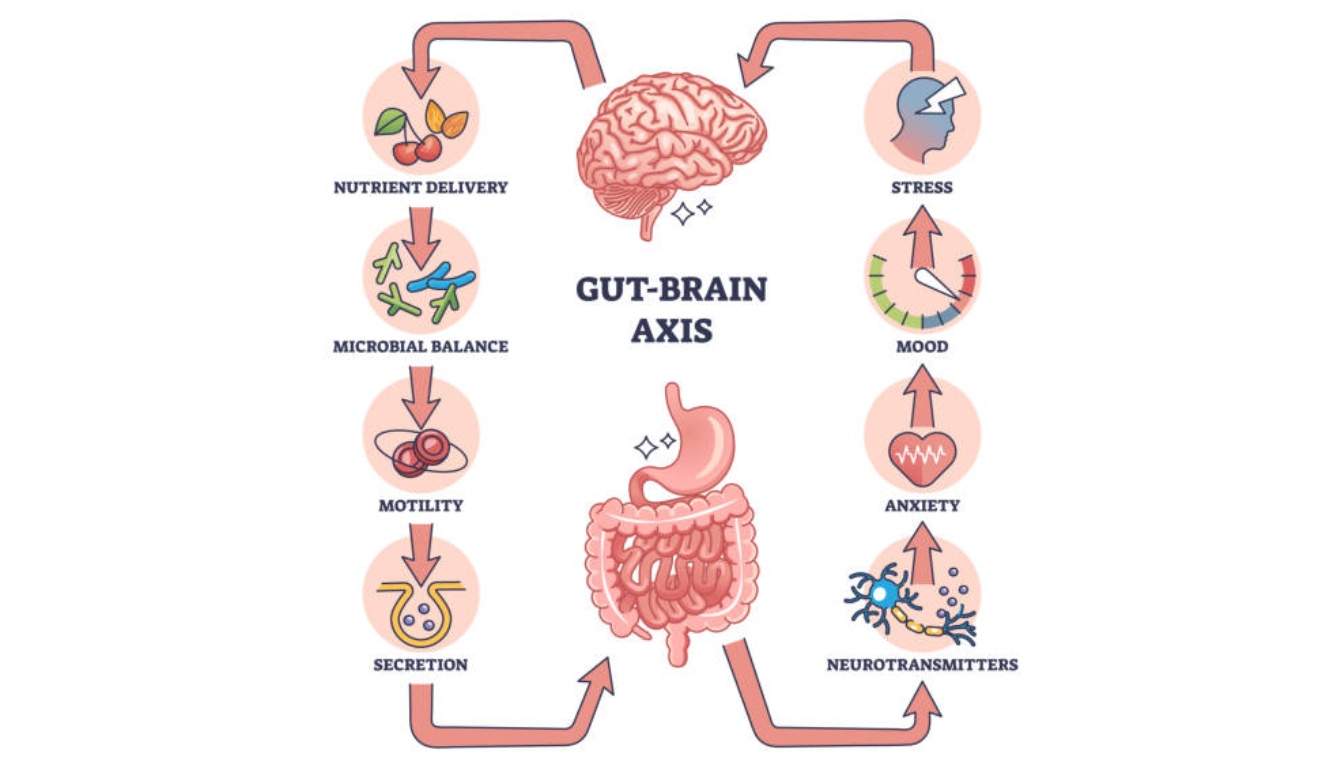
The Gut-Brain Axis: How Sweeteners Influence It While Cutting Back on Sugar
The gut-brain axis is a complex communication network between your digestive and central nervous systems, including the brain. This network allows the gut to send signals to the brain and vice versa. The gut is home to millions of neurons, which is why it’s often referred to as the “second brain.” This gut-brain link is vital in maintaining well-being, regulating stress responses, and modulating emotions. But when the gut is disrupted, such as by the consumption of artificial sweeteners, the entire system can be thrown off balance, potentially leading to mental health issues.
Artificial Sweeteners and Dysbiosis
In the quest for healthier lifestyles, many people opt to reduce their sugar intake by replacing it with artificial sweeteners like aspartame, sucralose, or saccharin. While this might seem like a smart move to cut calories and prevent sugar-related health issues, it could inadvertently disrupt the delicate balance of two crucial neurotransmitters in the brain: serotonin and dopamine. These chemicals play key roles in regulating mood, motivation, reward, sleep, appetite, and motor functions. Alterations in their levels or functioning can lead to a variety of disorders and symptoms.
The Hidden Impact of Artificial Sweeteners on Brain Chemistry
Artificial Sweeteners and Dysbiosis
Consuming artificial sweeteners can disrupt the delicate balance of the gut microbiome—a condition known as dysbiosis. This imbalance reduces beneficial bacteria, which are essential for producing neurotransmitters like serotonin and dopamine—the key chemicals that regulate mood, motivation, and overall emotional well-being.
Serotonin: The Mood Regulator
Around 90% of the body’s serotonin is produced in the gut, not the brain. This makes the health of your gut microbiome crucial for emotional stability. Disruptions in gut bacteria caused by artificial sweeteners may lead to decreased serotonin production, contributing to feelings of depression, anxiety, and mood swings.add
Imagine waking up in the morning feeling unusually tired or irritable. You may find it challenging to enjoy your favorite activities, like going for a run or spending time with loved ones. Tasks that once felt manageable—like tackling work projects or engaging in hobbies—may suddenly seem overwhelming. This emotional fog can lead to a cycle of negative thoughts, making it even harder to break free from feelings of sadness or disinterest.
Dopamine: The Motivation Chemical
Dopamine is another critical neurotransmitter influenced by gut health. It is associated with motivation, reward, and pleasure. When gut bacteria are disrupted, dopamine levels can drop, making it difficult to feel pleasure from everyday activities. This can profoundly impact one’s quality of life.
For instance, consider a student who once thrived in a bustling college environment filled with social interactions and academic challenges. After switching to a diet rich in artificial sweeteners, they may start to experience a lack of motivation, finding it difficult to focus on lectures or engage in discussions. Previously enjoyable activities, such as meeting friends or attending events, may begin to feel like a chore rather than a source of joy.
Serotonin and Dopamine Disruption: A Closer Look
Serotonin Disruption
- Mood Disorders: Serotonin is heavily involved in mood regulation. Low levels are commonly associated with depression, anxiety, and mood swings. Disruption can lead to increased irritability, feelings of sadness, and a lack of interest in previously enjoyable activities.
- Sleep and Appetite: Serotonin helps regulate sleep cycles and appetite. Disruption can cause insomnia or excessive sleepiness and lead to changes in appetite, either increasing or decreasing food intake.
- Cognitive Functions: Serotonin affects memory and learning. Altered levels may impair cognitive functions, leading to difficulties in concentration and memory retention.
- Physical Symptoms: Serotonin imbalance can result in physical issues like headaches, fatigue, and gastrointestinal problems due to its role in the digestive system.
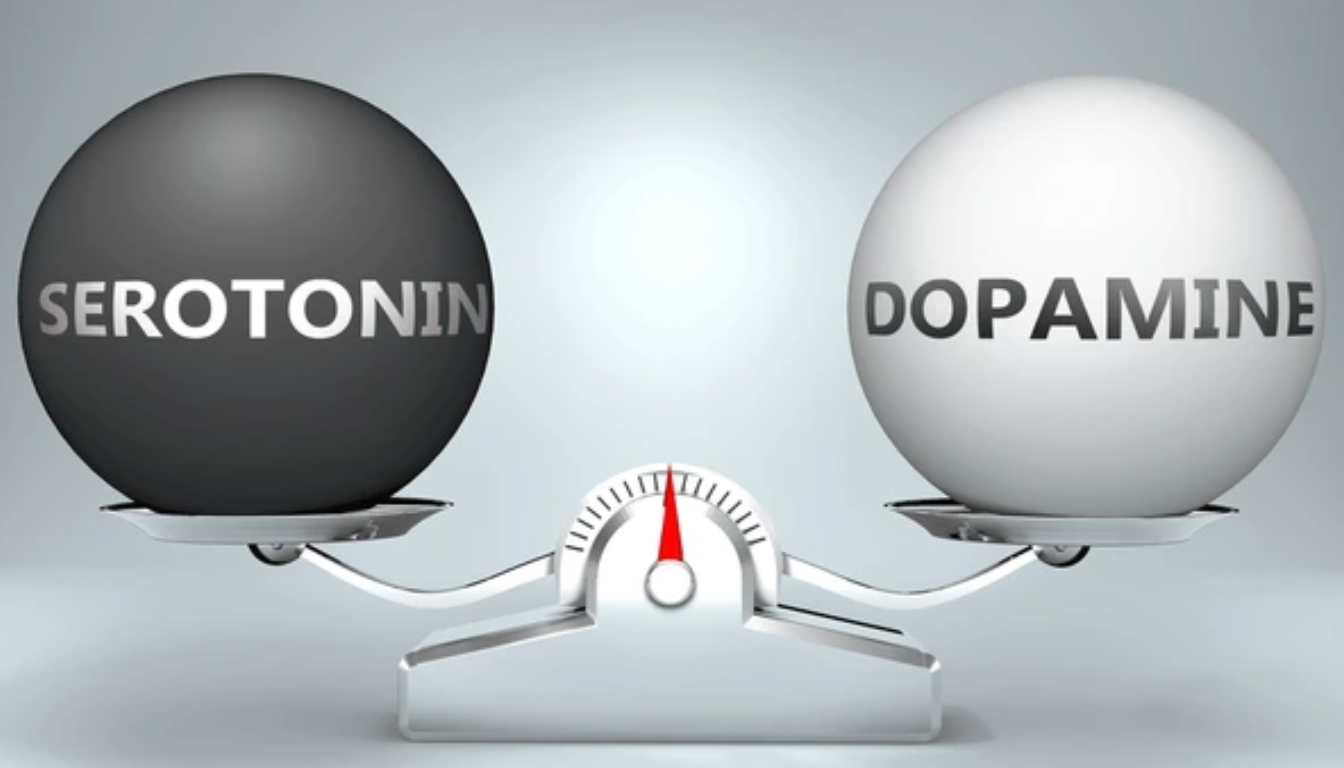
Dopamine Disruption
- Motivation and Reward: Dopamine is central to the brain’s reward system. Disruption can reduce motivation and pleasure in activities, contributing to conditions like depression and anhedonia (inability to feel pleasure).
- Movement Disorders: Dopamine is critical for coordinating movement. Reduced levels are linked to Parkinson’s disease, characterized by tremors, stiffness, and slowness of movement.
- Psychiatric Conditions: Excessive dopamine activity is associated with psychotic symptoms seen in schizophrenia, such as hallucinations and delusions.
- Addiction and Impulse Control: Dopamine dysregulation can lead to addictive behaviors and poor impulse control, as the reward pathways become over- or under-stimulated.
Case Study: The Hidden Emotional Toll of Artificial Sweeteners
A study published in the journal Psychoneuroendocrinology explored the effects of artificial sweeteners on mood and motivation in a group of participants. Over several months, individuals consuming beverages sweetened with aspartame reported higher levels of anxiety and mood disturbances compared to those consuming natural sweeteners.
One participant, Sarah, shared her experience: “I switched to diet soda thinking it would help me lose weight, but I ended up feeling more anxious and less motivated. I used to love going out with friends and enjoying life, but I started withdrawing. Tasks that used to excite me became daunting.”
This anecdote highlights how the interplay between gut health and neurotransmitter production can significantly affect daily life, making it harder to engage in activities that once brought joy or fulfillment.
The disruption of serotonin and dopamine production due to artificial sweeteners may lead to emotional challenges that affect daily life. From increased anxiety and mood swings to a lack of motivation and enjoyment, the hidden costs of these sugar substitutes can be far-reaching. By understanding the potential impacts of artificial sweeteners on your gut and mental well-being, you can make more informed dietary choices supporting your physical and emotional health.
Research Linking Artificial Sweeteners to Mental Health Issues
A growing body of research suggests that, while cutting back on sugar, the use of sweeteners may contribute to mental health challenges by affecting the gut-brain axis.
Aspartame and Depression
- Aspartame has been one of the most studied artificial sweeteners in terms of mental health. Its breakdown products include phenylalanine, which can cross the blood-brain barrier and impact neurotransmitter production. Research shows that high doses of aspartame may exacerbate mood disorders, including depression.
- A study published in the American Journal of Clinical Nutrition found that individuals who consumed diet soft drinks containing aspartame had a significantly higher risk of depressive episodes compared to those who didn’t consume diet drinks.
Sucralose and Cognitive Impairment
- While sucralose has been studied less for its direct effects on mood, some research suggests that it may negatively impact cognitive function by altering gut flora. A disrupted gut microbiome can affect memory, learning, and decision-making abilities through the gut-brain axis.
- Animal studies have shown that mice fed sucralose exhibited reduced cognitive performance and increased stress markers. Although more human studies are needed, these findings raise concerns about the long-term effects of sucralose on brain health.
Artificial Sweeteners and Anxiety
- Research also indicates that artificial sweeteners may increase anxiety by altering the gut’s microbial balance. In one study, rats fed a diet containing artificial sweeteners showed increased levels of anxiety-like behavior. The researchers noted that this behavior could be linked to changes in gut microbiota, which influence the production of gamma-aminobutyric acid (GABA). This neurotransmitter helps to calm the nervous system.
Mood Swings and Artificial Sweeteners
- Individuals who consume large amounts of artificial sweeteners often report mood swings or emotional instability. This could be due to how sweeteners impact insulin and blood sugar levels, which can affect mental clarity, focus, and emotional regulation. The disruption of gut flora can further exacerbate these mood swings, making it more difficult for people to regulate their emotional responses.
FAQ
Q: What are artificial sweeteners, and how do they impact our gut microbiome?
A: Artificial sweeteners, like aspartame, are made to taste sweet without the calories. They change our gut microbes, affecting blood sugar and health.
Q: How do sugar substitutes affect gut health?
A: Sugar substitutes can change gut bacteria. This may cause digestion problems and affect your health.
Q: Can artificial sweeteners cause changes in gut bacteria?
A: Sweeteners like saccharin can change the mix of gut bacteria. This might lead to health problems over time.
Q: What roles do gut microbiota play in digestion and overall health?
A: Gut microbes help break down food, make nutrients, and protect us from germs. A healthy gut is key to good health.
Q: How are artificial sweeteners absorbed in the body?
A: Most are not fully absorbed, reaching the colon, where they affect gut bacteria and metabolism.
Q: How does aspartame affect gut health?
A: Aspartame can change gut bacteria and blood sugar. It affects the balance of microbes.
Q: What are the effects of sucralose on the microbiome?
A: Sucralose changes gut processes, affecting bacteria and health. It may impact blood sugar and metabolism.
Q: How do artificial sweeteners vary in their impact on the gut microbiome?
A: Different sweeteners affect the gut differently. Their structure and actions change gut health in unique ways.
Q: What have recent studies discovered about artificial sweeteners and microbiome changes?
A: Recent studies show these sweeteners impact blood sugar and gut bacteria. We need to review their safety.
Q: What mechanisms do artificial sweeteners use to alter the microbiome?
A: They can change metabolism, gut pH, and bacteria growth. This affects gut health.
Q: What are the short-term effects of artificial sweeteners on the gut microbiome?
A: Short-term, they quickly change gut bacteria. This may affect digestion and metabolism.
Q: What is the difference between eubiosis and dysbiosis in the gut microbiome?
A: Eubiosis is a healthy gut state. Dysbiosis is an unhealthy imbalance. Sweeteners can disturb this balance.
Q: How can we balance our desire for sweetness with maintaining gut health?
A: Consider natural sweeteners like stevia. Eat foods that are naturally sweet and rich in fiber. It supports gut health.
Q: What are the regulatory guidelines for artificial sweeteners?
A: Agencies like the FDA set safe levels based on research. Different places have different rules.
Q: What are the future research directions for artificial sweeteners and gut health?
A: To clarify health impacts, research will examine gut responses to sweeteners, their long-term effects, and personal differences.
Q: How can we maintain a healthy gut microbiome?
A: Eat a varied, fiber-rich diet with probiotics and prebiotics. Reduce artificial sweeteners to keep your gut healthy.
Source Links
Artificial Sweeteners and Gut Microbiota
- Artificial sweeteners can affect your gut bacteria | Elsevier
- Artificial Sweeteners Alter Gut Bacteria in Humans
- Effects of Sweeteners on the Gut Microbiota: A Review of Experimental Studies and Clinical Trials
- Effect of Non-Nutritive Sweeteners on the Gut Microbiota
- Artificial Sweeteners And Gut Bacteria: What’s The Story?
- Artificial Sweeteners Could Harm Gut Microbiota
- Artificial Sweetener Could Seriously Damage Gut, According To New Study
- Artificial sweeteners induce glucose intolerance by altering the gut microbiota – Nature
- Bittersweet: artificial sweeteners and the gut microbiome – Nature Medicine
- Sweeteners and the Gut Microbiome: Effects on Gastrointestinal Cancers
- New research shows that sweeteners impact the microbiome
- Artificial sweetener could harm your gut and the microbes that live there – new study
- High-dose saccharin supplementation does not induce gut microbiota changes or glucose intolerance in healthy humans and mice – Microbiome
- Are non-nutritive sweeteners harming your gut microbiota?
- Artificial Sweeteners Negatively Regulate Pathogenic Characteristics of Two Model Gut Bacteria, E. coli and E. faecalis
- Artificial Sweeteners and Gut Health
Health Impacts of Specific Sweeteners
- Potential Effects of Sucralose and Saccharin on Gut Microbiota: A Review
- Ten-Week Sucralose Consumption Induces Gut Dysbiosis and Altered Glucose and Insulin Levels in Healthy Young Adults
- The Effects of Non-Nutritive Artificial Sweeteners, Aspartame and Sucralose, on the Gut Microbiome in Healthy Adults: Secondary Outcomes of a Randomized Double-Blinded Crossover Clinical Trial
- Effects of high dose aspartame-based sweetener on the gut microbiota and bone strength in young and aged mice
- Exploring harmful interactions between artificial sweeteners and gut microbiota
Mechanisms and Broader Health Effects
- Role of the gut microbiota in nutrition and health
- Sweeteners and gut health: No calories does not mean no health effects
- Nutrition at the Intersection between Gut Microbiota Eubiosis and Effective Management of Type 2 Diabetes
- Non-caloric artificial sweeteners and the microbiome: findings and challenges
- The Effects of Artificial Sweeteners on Intestinal Nutrient-Sensing Receptors: Dr. Jekyll or Mr. Hyde?
- Frontiers | The artificial sweetener neotame negatively regulates the intestinal epithelium directly through T1R3-signaling and indirectly through pathogenic changes to model gut bacteria
- Frontiers | A Metagenomics Investigation of Intergenerational Effects of Non-nutritive Sweeteners on Gut Microbiome
Gut Health Tools and Prebiotics
- A new low-calorie sweetener may also have prebiotic potential
- 6 Key Tools to Improve Your Gut Microbiome Health
Comprehensive Overviews
Aroma Sensei
Aroma Sensei Good post! We will be linking to this particularly great post on our site. Keep up the great writing
Belli Health
No problem, I hope my posts can reach more audience to be more aware of how sweeteners can negatively affect gut health. Thanks for your support!
exploreuaeonline
Hi i think that i saw you visited my web site thus i came to Return the favore Im attempting to find things to enhance my siteI suppose its ok to use a few of your ideas
Belli Health
Anything that can help add value to your site, I support. Everyone has the opportunity to do their best by helping others. Thank you for your return.




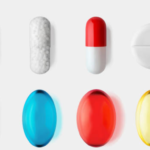
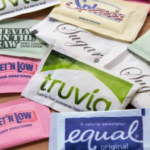


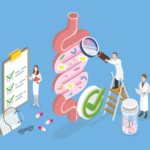






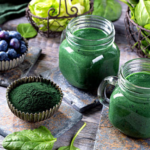
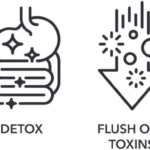
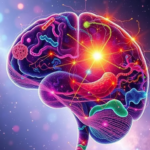


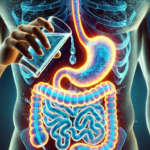
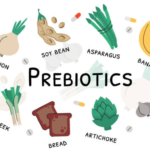
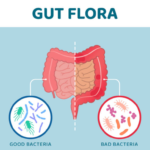





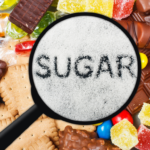


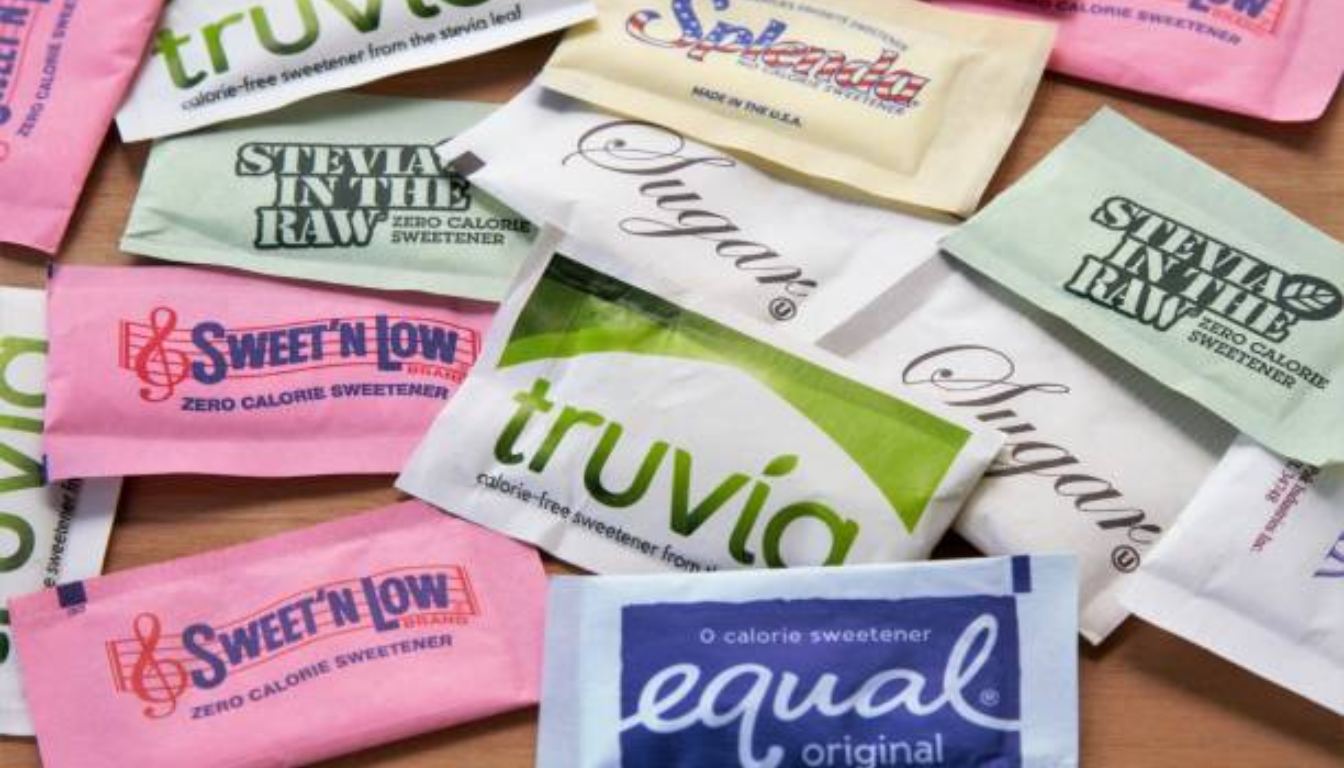








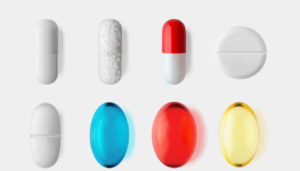
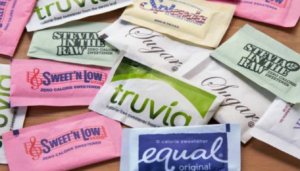


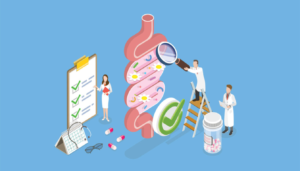

4 comments